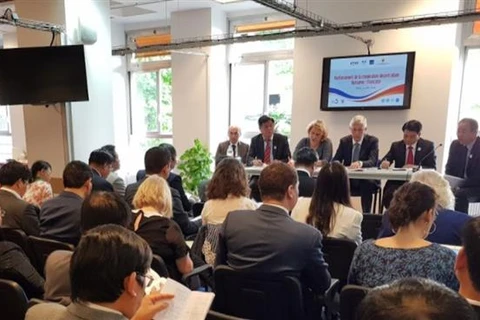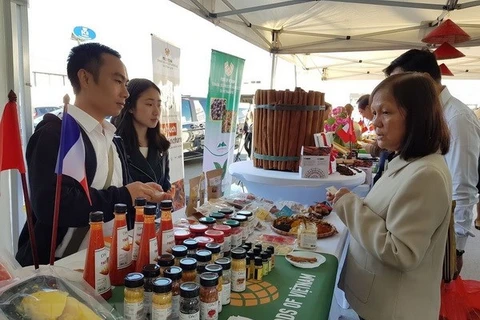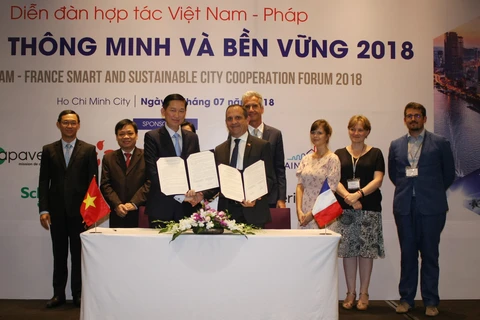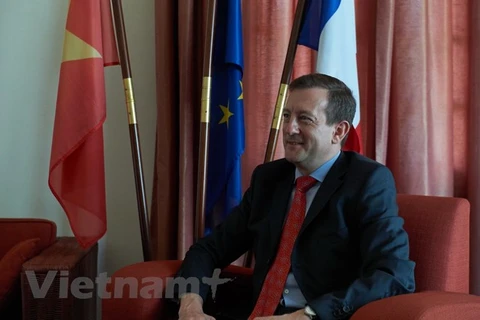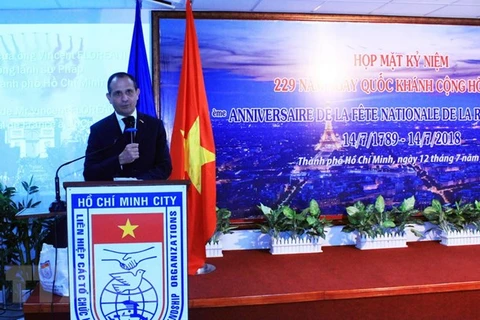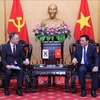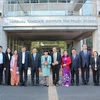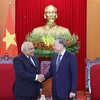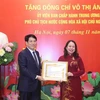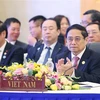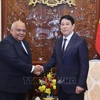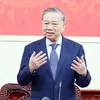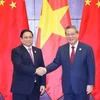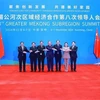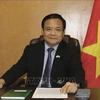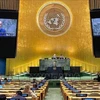Hanoi (VNA) – President Tran Dai Quang on July 13 sent greetings to his French counterpart Emmanuel Macron on the occasion of the 229th National Day of France (July 14, 1789 - 2018).
The same day, Prime Minister Nguyen Xuan Phuc also cabled his congratulations to French Prime Minister Edouard Philippe.
Deputy Prime Minister and Foreign Minister Pham Binh Minh extended his greetings to French Minister of Europe and Foreign Affairs Jean-Yves Le Drian on the occasion.
In the messages, the Vietnamese leaders emphasised the importance of the year 2018 when the two countries mark the 45th anniversary of their diplomatic relations and five years of the bilateral strategic partnership.
The leaders expressed their delight at the strong progress of the Vietnam-France relationship over the past time, and proposed that the two countries work closely together for the stronger and more effective development of bilateral ties in the interests of both peoples and for the sake of peace, cooperation and development.
Vietnam and France officially set up diplomatic ties on April 12, 1973. The two nations decided to establish the Strategic Partnership in 2013.
In recent years, the two sides have maintained the exchange of high-ranking visits and various cooperation mechanisms. Notably, apart from organising the Vietnam-France Defence Policy Dialogue, the two countries have also maintained high-level economic dialogues and financial and economic forums.
France was the first Western country to have a defence attaché in Vietnam in 1991. In November 2009, the two ministries of defence signed an agreement on annual rotating organisation of the Vietnam-France Joint Committee on National Defence Cooperation, which was renamed “the Defence Policy Dialogue” with its first meeting in November 2016.
Trade links between the two sides has witnessed strong development in recent years. Vietnam has enjoyed a trade surplus in exports to the French market. Two-way trade hit 4.6 billion USD in 2017, up 11.6 percent from the previous year.
France began investing in Vietnam in 1988. In 2017, France ranked third among European countries, and 16th among 125 countries and territories investing in Vietnam, with 513 valid projects worth 2.8 billion USD. France’s direct investment in Vietnam mainly focuses on IT and processing and manufacturing industries.
France is a leading European ODA provider for Vietnam, and Vietnam is the second largest beneficiary nation of French ODA in Asia, with total committed capital of 18.4 billion USD since 1993.
Regarding educational cooperation, France regards education and training as a priority in its cooperation with Vietnam, focusing on French language teaching and human resources training at tertiary and post-graduate levels in various areas like economic management, banking, finance, law and new technology.
The French Government allocates about 5 million EUR (6.1 million USD) for cultural cooperation with Vietnam each year, including support for French culture centres in Hanoi (L’Espace), Ho Chi Minh City (Institute of Cultural Exchange with France – IDECAF), Hue and Da Nang.
With 14 projects worth 188 million USD, France ranks seventh among countries and territories in terms of tourism investment in Vietnam, which considers the EU nation as a key source of tourists.
Beginning in early 1990s, cooperation among localities of the two countries has become a special feature in the bilateral relations. As many as 38 French localities have established partnerships with 18 provinces and cities of Vietnam. Since 1990, there have been 235 projects between localities of Vietnam and France, focusing on health care, education, water and hygiene, heritage preservation, French-speaking community, rural and sustainable development.
As members of the International Francophone Organisation (OIF), the two sides have many cooperation activities within the organisation, especially in teaching French, higher education and parliamentary activities.
Currently, around 300,000 Vietnamese people are living, studying and working in France, 40,000 of whom have tertiary or postgraduate degrees. Many of them are working in universities, research institutes and administrative agencies of France.-VNA

